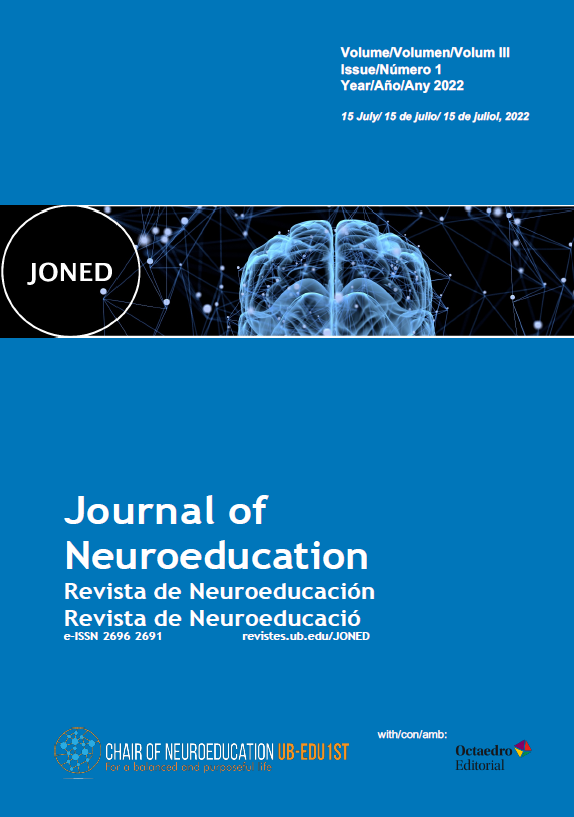Una aproximación al concepto de evaluación para el aprendizaje y al feedback con función reguladora a partir de los diarios docentes
Keywords:
professional development, reflective journals, evaluation, self-regulacion, executive functions, feedbackAbstract
What am I learning? How am I learning it? How will I know I'm doing it right? What's my next step in my learning process? How does the brain act when I'm learning? How can I improve?
What do teachers think about these questions? The main objective of this research is to better understand teacher thinking when they reflect on evaluation, self-regulation, and feedback.
For this, what we have done has been to learn, which means to catch. We have been trapped by the learning diaries of teachers.
In the first part, learning by discovering, a tour is made of how teachers are trained (professional development), how they think about learning and teaching (self-regulation, self-regulation, and metacognition), what executive functions are (planning, inhibitory control, cognitive flexibility, working memory) and how they intervene and are activated in the brain in the learning process.
In the second part, learning by doing, the research carried out is described: the objectives, the methodological design, the results, and the discussion that relates the results obtained with the theological evidence.
- The learning diaries that teachers have written are classified and thus be able to analyze their way of seeing the evaluation, the different ways of carrying it out and the relationship between evaluation, self-evaluation, co-evaluation. Why, for what and how of the evaluation.
- Evidence of the importance of executive functions in evaluation for learning is shown and eight characteristics of feedback are defined to favor autonomy and co-responsibility in learning.
- It analyzes what type of feedback is most effective, when it is most convenient to offer and receive it, how the error is interpreted, the power of the questions and the importance of accuracy and empathy to offer and receive quality feedback.
In the third part, learning by thinking, the conclusions are presented in the hope of opening a space for reflection to better understand what it means to evaluate to learn.
Downloads
Published
Issue
Section
License
Copyright (c) 2022 Iolanda Nieves de la Vega

This work is licensed under a Creative Commons Attribution-NonCommercial 4.0 International License.
The authors who publish in this journal agree to the following terms:
a. Authors retain copyright and grant the journal the right of first publication
b. Texts will be published under a Creative Commons Attribution Non Commercial License that allows others to share the work, provided they include an acknowledgement of the work’s authorship, its initial publication in this journal and the terms of the license, and not for commercial use.



